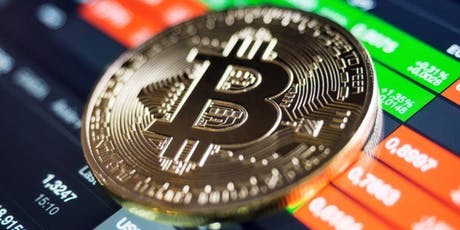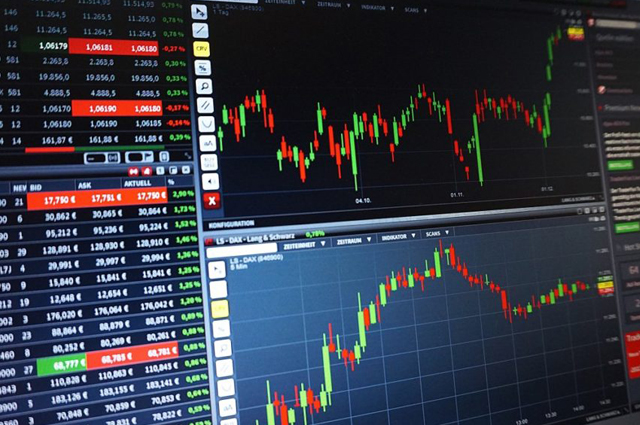Bitcoin and cryptocurrencies aren't new, but they've hit the headlines in recent months due to the incredible profits some people have made. Investors saw gains of over a thousand percent in 2017 at a time when interest rates are at historic lows in most countries. Bitcoin is the digital currency most often reported on, but others have delivered even greater profits. A thousand dollars invested in Ethereum in January 2017 had grown to over eighty thousand dollars by the end of the year.
Cryptocurrencies certainly carry high risks, but the potential returns mean they have an obvious appeal. Many financial experts believe recent growth rates aren't sustainable and that the bubble will burst. If you're wondering whether to invest in Bitcoin or other digital currencies, the following frequently asked questions will help.

1) What are digital currencies?
Bitcoin and cryptocurrencies are a digital form of money. They allow you to send and receive money anonymously over the internet. Digital currencies like Bitcoin are decentralized, meaning no person or country are in control of them. Just as with any form of money cryptocurrencies can be traded, used to pay for goods and services or held as assets.
2) Who created Bitcoin?
Satoshi Nakamoto invented Bitcoin in 2008. His identity is shrouded in mystery, but he is believed to be one of the richest people in the world. Nakamoto wrote a paper describing how his digital currency would work, and it was then released as open source software in 2009.
3) How does Bitcoin work?
Digital currencies work on so-called 'blockchain' technology. The blockchain is secure data recording every transaction and the ownership of every digital coin in circulation. The security of the data is one of its attractions, as it means cryptocurrencies can't be manipulated or forged.
4) How do people make money with Bitcoin?
In simple terms, you make money by holding digital currencies and selling when the prices rise. Just as with property, shares and other assets, the key is to buy low and sell high. Bitcoin prices have been very volatile over recent years, so some investors have made huge profits by timing purchasing and selling correctly. Bitcoin traders also make money in falling markets by 'shorting' in a form of spread betting.
5) Do you have to buy a whole Bitcoin?
With recent prices as high as nine thousand dollars, buying a whole Bitcoin is beyond the resources of most investors. You can buy Bitcoins in decimals, so it's possible to start investing with just a hundred dollars.
6) Do you trade digital coins or actually own them?
You can buy and sell digital coins or trade them for different cryptocurrencies, but you do actually own them. There are companies that will hold Bitcoins on your behalf, but the safest way is to store them in your own digital wallet. If a company holding cryptocurrencies on your behalf ceases trading, you could lose your money. Using a digital wallet means you hold the private encryption keys to your digital currency.
7) Who uses digital currencies?
Some press reports paint a picture that terrorist groups and organized criminals are the main users of Bitcoins, but this isn't the case. Ordinary people who want a secure currency that isn't controlled by governments are becoming one of the main markets for digital coins. Investors who have seen the incredible profit potential of trading Bitcoins are another high user. Criminals and terrorists are moving to digital coins with additional privacy features, such as Zcash.
8) How are digital coins mined?
The term 'mining' causes a lot of confusion when people refer to digital coins. Think of it as cracking a code to release a coin into circulation. There are twenty-one million Bitcoins in existence, but they aren't all in the digital currency market yet. Experts predict it could be as late as 2140 before all Bitcoins are in circulation. The mining process involves solving complex computational problems to chain together blocks of transactions.
9) How big is the cryptocurrency market?
The surge in popularity of Bitcoin and other digital currencies means the market is growing on a daily basis. Estimates predict it grew from sixteen billion dollars in January 2017 to seven hundred billion by the end of the year. Although they can be highly volatile, digital currencies aren't as high risk as spreadbetting, so new investors are still entering the market.
10) Is the market a bubble about to burst?
This question divides expert opinion, and of course, it's impossible to say whether digital currencies will crash. The European Union warned of potentially huge losses at the start of 2018, and the so-called 'G20' group of large European countries is discussing possible regulation of digital money. Some cryptocurrency traders argue that dips in the market are good in the short term and that buying the right digital coins is still a good investment.
If you can accept the volatile nature of Bitcoin and digital currencies, there are opportunities to make money. The market is still evolving, and the next few years will see new regulation and new forms of digital coins.
Tradesmarter provides a unique and powerful trading trading solutions, learn more about our White Label Cryptocurrency trading Platform here.











